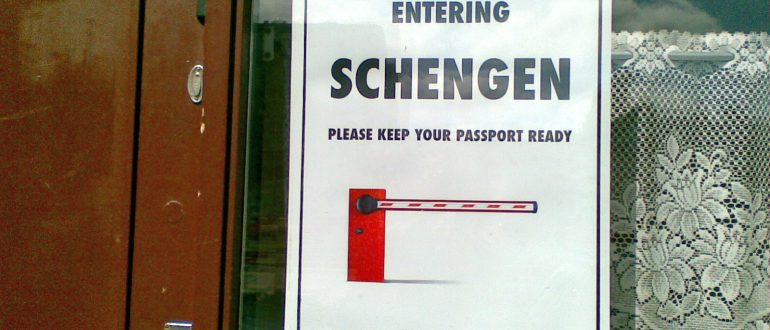
The Failure of Schengen: A Report
On June 15th, 1985, five European states, including Germany, France and Belgium, signed the so-called Schengen Agreement. In it, they agreed to coordinate their judicial systems and improve their collaborative police work. But, the agreement’s decisive policy, which would deeply shape Europe’s self-understanding in the decades following, was the freedom of travel it permitted within these countries outer borders. It announced with conviction that “Internal borders may be crossed at any point without identity checks”. Ten years later, this regulation went into effect. Today, 26 states, some of which do not even belong to the EU, have signed the Schengen Agreement. Citizens of the Schengen Area thus enjoy a unique privilege: the disappearance of borders as a lived reality. For these countries’ citizens, this freedom to cross internal borders is part of an inner-European culture of hospitality to which they have become accustomed as part of everyday life. Yet, since the Refugee Crisis of 2015, this idea of European freedom, one of the Schengen Agreement’s greatest achievements, has been rendered little more than an ideal. With the uncontrolled immigration into the EU via the Balkan route and the terrible pictures from the Mediterranean, a number of states saw themselves forced to reinstate border checks.
I was traveling on an overnight train from Bologna to Munich when identity checks within the Schengen Area became a bitter reality for me. It started on the Italian-Austrian border, when we stopped at an unnamed train station and border officers went through the train checking all passengers’ IDs. After showing my ID, I wanted to smoke a cigarette and stepped outside the train. Outside, however, stood a group of officers surrounding three people. Nigerian refugees, as would later become clear. While two men left with the officers immediately, a young woman broke out in tears and cried for over 15 minutes, leaning on her waist-high trolley bag. It was clear that she had come to stay. Eventually, with some soft words from an Austrian policeman, she followed the officers and my train ride went on. Yet, only a few hours later, I was woken up by a German federal police officer on the Austrian-German border at 6 a.m. After finding out that I was German, she woke up the other passenger in my cabin, with whom I had exchanged only a few words in Italian, and tried speaking to him in English. It quickly became clear that this was impossible and I translated for the police officer from Italian to German. As we learned, my travel companion came from Albania and had a three-month visa for the Schengen zone, which had expired a year ago. He was also taken away by the officers and I wished him all the best as he left. Before leaving, the police officer asked to see my ID as well. After such an intense experience, sleep was out of the question. Not that I would have had a chance to sleep anyway, since, not even an hour later, the federal police were standing in front of my cabin yet again, this time, in civilian clothing. My ID was checked again and I was asked the standard questions: where I’m coming from, where I’m going and whether I had drugs or weapons with me. The police officer quickly understood that I didn’t fit his profile. Apparently, however, his colleague from the Bavarian Police did not. Instead, half an hour later, he asked for my ID and went to cross-check my identity. Finally, two inner-Schengen borders and four ID checks later, I reached Munich at 8 a.m.
In the last two years, such experiences have become part of everyday political reality in the European Union and this will not change in the foreseeable future. In November 2017, France extended its border checks until April 30th, 2018. Germany, Austria, Denmark, Sweden and Norway have extended them until May 12th, 2018, though, legally, they could be prolonged until autumn of 2019. In addition, the European Commission is considering changing the agreement so that, while the formal requirements for introducing border checks would be stricter, freedom of travel within the Schengen Zone could be suspended for three years. The implementation of such changes in 2018 would mean a continuation of border checks until 2020.
Whether this is appropriate, as the European Union’s outer borders are submitted to increasingly strict control, remains questionable. The closing of the Balkan route, the refugee agreement with Turkey and a larger military and civil presence on the Mediterranean have limited and lead to a better control of immigration to Europe. It is time for Europe’s civil society to stand up and actively oppose this regime of borders now forming, directing itself both externally and internally. Only in this way can we create humane dynamics of migration into the EU, while also living out core European values within Europe.
© Picture: Fif’ (flickr.com)
